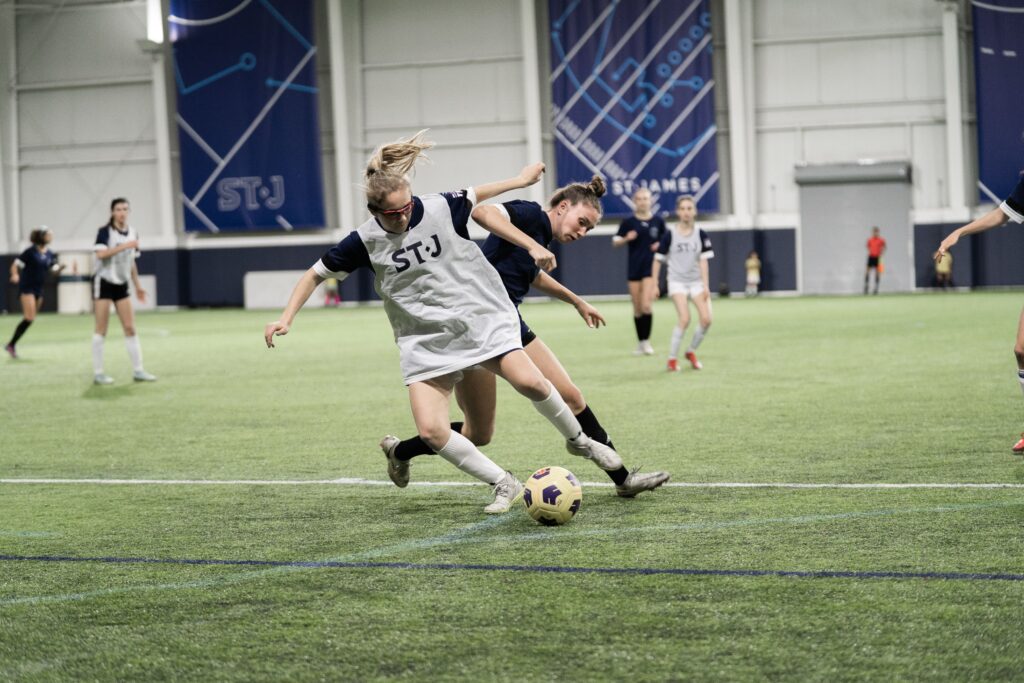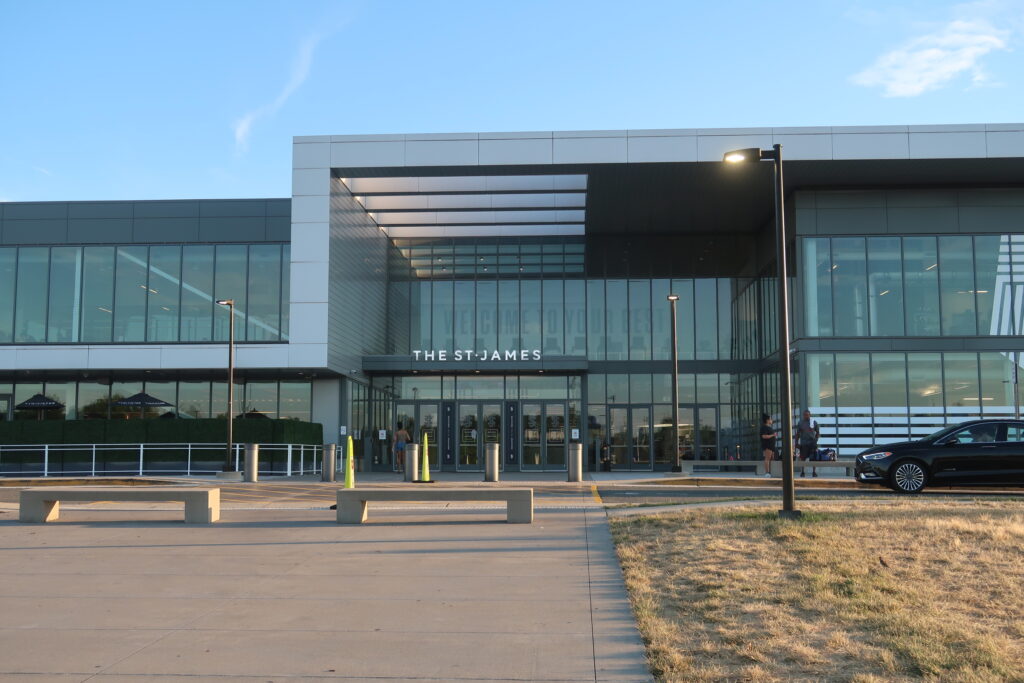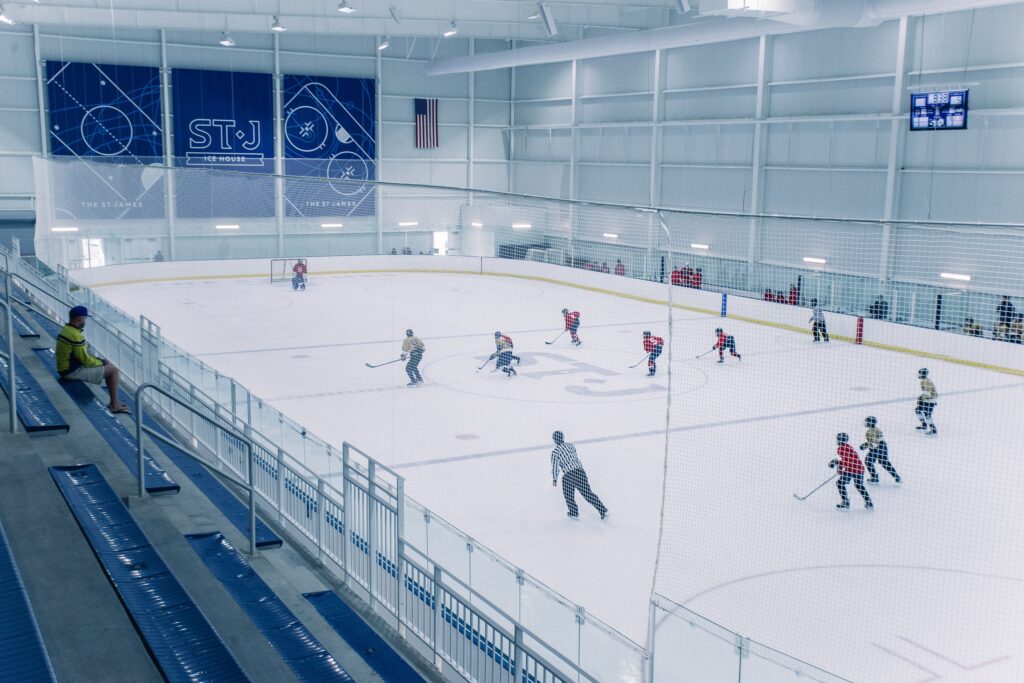Private school to open at the St. James sports complex

Middle and high school students aiming for a career in professional sports, or at a spot on a college team, have a new opportunity.
The St. James Performance Academy is launching in late August at the St. James sports complex in Springfield.
The school offers a rigorous college preparatory program combined with sports training and personal development, said St. James Chief Operating Officer Jeff Riney at a meeting for parents on June 20.
The academic instruction will be virtual and individualized, giving students the flexibility to participate in team sports and out-of-town games.
The program is a partnership of the St. James and the TPH Academy, an organization that runs similar programs for elite student-athletes at 17 locations across the country.
The leaders of both the St. James and TPH have extensive contacts with college coaches and admissions officials, which is expected to give an age to students aspiring to the next level.

Tuition is $28,000 for the first year and is expected to rise substantially in subsequent years, Riney said. Parents who enroll the first year will have an annual price increase capped at 5 percent. Anyone who registers by June 30 will get a $1,500 discount.
So far, 25 students have enrolled, said Riney. Those students are focusing on ice hockey, soccer, lacrosse, basketball, and baseball. The program is also open to student-athletes interested in other sports, such as football, gymnastics, and swimming.
The academic curriculum and instruction, including art and science labs, will be done virtually, said Tere Hernandez-Acosta, the director of the St. James Performance Academy.
Students will work in a large classroom outfitted with desks and a lounge area. Success coaches, licensed teachers, and mentors will be in the classroom to help students keep up. There will be two tracks – regular and advanced.
Students will complete assignments at their own pace, Hernandez-Acosta said. She plans to invite professional athletes as guest speakers and will host field trips, community service projects, and student-centered initiatives. “We want the kids to be well-rounded.”

The coach mentorship component will be aimed developing an elite-athlete mindset. Roundtables will be scheduled on Zoom focusing on such issues as situational awareness and healthy eating. Students will be required to record their self-reflections in a journal.
The athletic training and conditioning will be customized for individual student’s sport and position. For example, a hockey goalie will have a different training program than a defenseman.
Each student will have an app with their attendance record, academic reports, athletic testing data, and wellness data.
Tuition does not include meals. Families can opt to have customized meals delivered to the St. James from MightyMeals. Students can also bring food from home or get food from the restaurant at the St. James.
The tuition covers a St. James membership for the student; families will get a discount on membership. Other services, such as injury recovery and private lessons for those who want more training than two hours a day, are extra.


This is really weird
And expensive. I guess if your kid goes pro it would pay off, but that seems like a real long shot. Maybe invest the $28 k (plus the yearly increases!) and just send your kid to college or trade school?
This is something that happens everywhere but the US, actually. That’s why soccer is so much better in Europe and South America. Even the best USMNT players grew up and trained outside the US. Now whether or not it’s good for kids depends on how the school is run. But I’d argue the idea isn’t inherently bad (as long tax dollars aren’t siphoned from public schools to pay for athletic training).
Weird how?
So this place will be a TJ’s for sports? Personal athletic training, but college prep with virtual academic classes. Pay-to-Play. It’s only a matter of time before they are receiving school vouchers. And the academic track will probably be preparation for a college major in something like Sports Information — the most popular major for scholar-athletes at my former university.
why shouldn’t a parent be allowed to select the best educational system for their child and use the per-child funding level “allocation” of state and local funds to fund that selection? The public school system is currently a one-size fits all approach and not all students are the same, hence why grade level literacy in FCPS is at a mid 30% level. Students with ESL challenges should be allowed to go to an English language academy that is tailored to intensive English language learning while also teaching grade level appropriate materials. Students with a desire to pursue music and arts should be allowed to use their funding allocation to go to a music or fine arts academy that is tailored to teaching music or fine arts while also conforming to the state educational standards. Students that have an IEP should be able to use their funding allocation to go to an academy specially tailored to meeting them at their ability. Parents should not have to fund both the Public School System and a school system that best fits the needs of their child.
Part of the problem with this approach is that the “allocation” you’ve described might be less than what a household is contributing to the pot. I believe funding from schools comes from more than just home property taxes, so it is an aggregate from a multitude of sources, and likely impossibly identifiable to an individual level. You could argue that someone could want their portion of property taxes that went to schools back for a purpose such as this, but I have a feeling it would be much less than you realize and would those requesting for it would be clambering for that free money they think is just thrown around.
If you want your child to attend a non-public school, then pay for it on your own (I say this as someone with a young child not far away from starting school). This would create a slippery slope for anything your tax dollars go to such as public transportation, parks etc.
Well I don’t use them so why should my money go to that? I’d rather it go to something I use or something I believe in.
How would that ever work for a country/state/county so large? What is your solution that isn’t just pure chaos?
Yeah, Mark H! And I would rather grow my own trees and raise my own squirrels than go to a county park, so can I get that part of my taxes back?
Yes. Jai Cole and the park authority that allows homeless encampments and travesties like White Gardens should be completely defunded. And FCPS should be completely defunded. How can they be benefiting society when the graduation rate is so high, and the literacy rate so low?
I’ll add that NIL (Name, Image and Likeness) money is allowed for Virginia high school students, so less wealthy scholar-athletes can benefit from this program. And I imagine that was factored into the the organization’s business plan to make it more viable.
Will there be scholarships to compete at the highest level? This will explain everything.